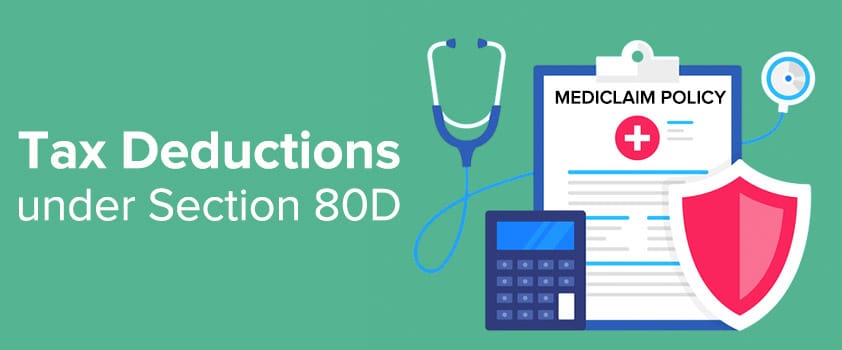Section 80D of Income Tax Act: Complete Guide to Deductions for Medical Insurance, Limits, and Eligibility
Updated On: 16 Jan 2025
Health insurance is an essential precaution to protect against unexpected medical expenses. Despite its importance, many individuals in India rely on savings or borrow money during medical emergencies. To encourage people to invest in health insurance, the government offers tax benefits under Section 80D of the Income Tax Act. Here’s a simplified guide to understanding this section.
What is Section 80D?
Section 80D allows individuals and Hindu Undivided Families (HUFs) to claim tax deductions on medical insurance premiums paid in a financial year. This deduction is over and above the ₹1.5 lakh limit under Section 80C, making it an additional tax-saving opportunity.
Eligible plans include:
Who Can Claim Deductions Under Section 80D?
-
Individuals: For premiums paid for self, spouse, dependent children, and parents.
-
HUFs: For premiums paid for members of the HUF.
Note: Companies and firms cannot claim deductions under this section.
What Exemptions Are Covered Under Section 80D?
-
Medical Insurance Premiums:
-
₹25,000: For individuals below 60 years (self, spouse & children)
-
₹25,000: For parents below 60 years & total exemption a person can make is ₹50,000
-
₹50,000: If insured family members or parents are senior citizens (60 years and above) & total exemption a person can make is ₹75000
-
Preventive Health Check-ups:
-
Up to ₹5,000 (within the overall limit) for check-ups for self, spouse, children, or parents.
-
Medical Expenses for Senior Citizens:
-
Up to ₹50,000 for uninsured senior citizens for medical costs like consultations, medicines, and impairment aids.
-
Contribution to CGHS/Notified Schemes:
Deduction Limits Under Section 80D
The table below outlines the maximum deduction based on the scenario:
|
Policy For
|
|
|
Preventive Health Check-up
|
Maximum Deductions Limit
|
|
Self & Family
|
|
|
₹5,000
|
₹25,000
|
|
Self & Family + Parents (< 60)
|
|
|
₹5,000
|
₹50,000
|
|
Self & Family (< 60)
+ Parents (> 60)
|
|
|
₹5,000
|
₹75,000
|
| |
|
|
|
|
Examples
-
Rakshit's Case:
-
Age: 45 years
-
Father’s Age: 75 years
-
Premium Paid: ₹30,000 (self), ₹35,000 (father)
Deduction: ₹25,000 (self) + ₹35,000 (father) = ₹60,000.
-
Sid's Case:
-
Health Insurance Premium: ₹23,000 (self, spouse, children)
-
Preventive Check-up: ₹5,000
Deduction: ₹23,000 (insurance) + ₹2,000 (check-up) = ₹25,000.
Multi-Year Health Insurance
For policies with a lump-sum premium payment covering multiple years, deductions are proportionately spread across those years.
Example: A two-year policy with a ₹30,000 premium allows a ₹15,000 deduction in each year.
How to Choose the Right Medical Insurance
-
Ensure the insurer is approved by IRDAI.
-
Opt for policies with cashless claim settlement and a wide hospital network.
-
Consider policies covering AYUSH treatments and pre/post-hospitalization expenses.
-
Look for benefits like no-claim bonuses, daily cash limits, and yearly health check-ups.
-
Confirm COVID-19 coverage and specific expense inclusions like PPE kits.
Points to Remember for Section 80D Deductions
-
Premiums for siblings, grandparents, or working children are not eligible.
-
Group health insurance provided by employers cannot be claimed.



